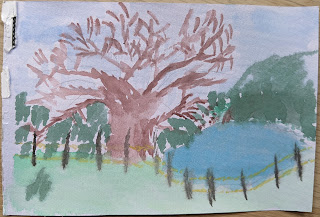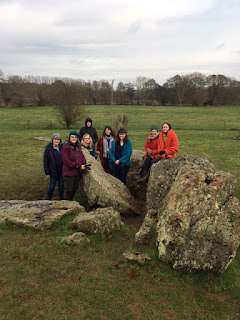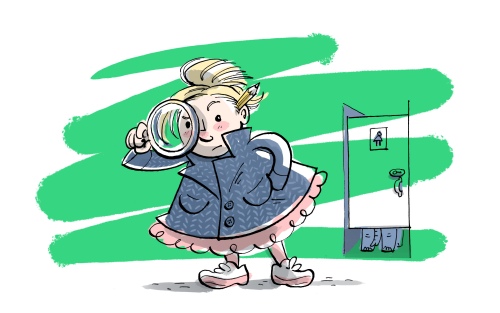Plan the book, write the plan. That’s the simplistic advice I gave myself two years ago during a twelve-day intensive writing retreat, at the end of which I announced here on ABBA that writing the seventeenth century witch trial work-in-progress had finally begun.
On 6/9/2022 to be precise.
Hurrah! Two years is not so very shameful for writing half a (semi-edited) manuscript.
True, the story has been in the pipeline for more than ten years. Serious research and planning began in 2020. But with life brimming over with other demands, my inner ‘hero’ storyteller can claim it’s all going swimmingly, thank you very much.
However...
Was it good advice, that stuff about the plan? Will it help me over the finish line when I’ve ‘only’ got two more years of the PhD to go, with a thesis to write as well 40K more creative words to draft and edit?
In short, where is the WIP at this sort-of half-way point?
Chez Castillon writer's retreat
Well, today ‘the plan’ looks nothing like it did in September 2022. Back then, two female characters loomed large in a story centred on a male protagonist. Now, while both women are still important, they are reduced to walk-on parts. This is a shame from a feminist standpoint, but necessary as the focus of the story shifted in the telling, and its core became clearer.
And that's just fine thanks primarily to advice from Hisham Matar and George Saunders. They helped me losen up to such an extent I’d now say I’m a card-carrying member of the Forget Self-imposed Creative Constraints Party. The plan should be fluid. If anything’s not working, jettison it! Create something better. More original. More precise.
That’s not the same as 'let rip' drafting, which lots of writers I admire subscribe to. Maybe you could say at this half-way point I'm at a half-way house between plotting and panstering. Yes, I'll follow the story deep into its wood but also remember what a path looks like. Otherwise it’s not a journey, it’s just getting lost.
What hasn't changed is my reliance on synopsis-based plans informed by the likes of Truby, Storr, and Scott Bell. They are still my go-to gurus when things fall apart. Paradoxically, however, I've found these storytelling ‘systems’ work best when you use them flexibly. Picking and mixing. Accepting much of the advice is contradictory, even at times misleading.
The important thing to remember is that planning is good practice, even when any one plan goes spectacularly wrong. Plans are adaptable to evolving content; they’re tools, not straight-jackets.
Another lesson I’ll flag up to myself at the half-way stage is this: as the opportunity to write recedes to the end of the month, a full six weeks after I had to stop writing this summer, trust that you will get back to it. The story will be in stasis, or even subconsciously developing during these inevitable downtimes. Over the past four years, life has derailed me repeatedly. Each time it has taken at least a week to regain a creative frame of mind and pick up the pieces again. That’s just how it is.
Since 2022, I’ve also found I wrote the largest number of new words during intensive bouts of working, primarily on retreats but also during the adapted NaNoWriMo I did last year. These new words were, however, almost entirely misdirected and got jettisoned within weeks.
But that is fine, too. The old adage ‘get it writ then get it right’ applies to acts, chapters and scenes - whatever chunk of text you’re writing. Thus it is possible – perhaps necessary – to be a panster and a plotter at the same time. The plan will stop rubbish words from dragging the whole thing down.
Finally - and this after reading a truly irritating ‘dialogue’ between Richard Osman and Lee Child in The Guardian today - I will add one last thought before signing off.
Dwelling on the inequalities of the publishing industry is wasted time. Damn celebrities. Writing this story is a learning process at so many levels: creative, psychological, political. In the end, learning will keep you saner than not learning, even in our crazy world.
Enjoy the beginnings of autumn if you’re in the northern hemisphere. See you on the other side of the equinox.
More Chez Castillon. Lovely!
Rowena House Author on Facebook for writing stuff
@HouseRowena on Twitter/X for rants about the world















































